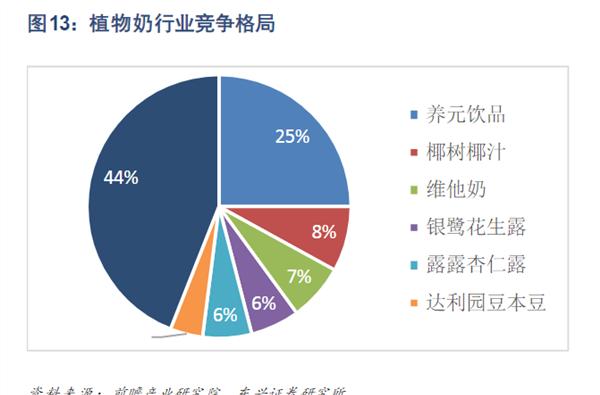Recently, the three quarterly reports of the two major domestic protein beverage companies, Chengde Lulu and Yangyuan Beverage have been disclosed. Among them, the net profit of Chengde Lulu increased by 32.4% year-on-year, and the net profit of Yangyuan Beverage increased by 39.54% year-on-year.
Although the year-on-year data looks bright, it actually benefits from last year's low base. If the third quarter of 2019 is the base, Chengde Lulu only increased by about 10%, and Yangyuan Beverage did not increase but declined.
In addition, the performance of the two companies in recent years is really not good: Chengde Lulu's net profit has been hovering between 400 million and 500 million since 2014; Yangyuan Beverage has hovered between 2 billion and 3 billion. Why has the performance of Chengde Lulu and Yangyuan Beverage been standing still for six or seven years? Let's start with the characteristics of this industry.
First, the industry: digging ditches and building walls, mountains are lined up
Plant protein drink refers to a milky drink made of plant nuts and pulp as raw materials, typical of soy milk, walnut dew, almond dew, peanut butter, coconut milk and so on. Compared with animal protein drinks such as milk, plant protein drinks have some unique advantages: their cholesterol and fat content is less, it does not cause lactose intolerance, and it is a good milk substitute.
At the same time, the production of plant protein drinks is more environmentally friendly, producing only 11% of the greenhouse gases of animal protein drinks. Livestock is the world's largest carbon emitter, accounting for 14% of total carbon emissions.
This feature of plant protein drink health + environmental protection makes it quite popular in Europe and the United States: in 2020, plant protein drinks in the United States accounted for 20.4% of dairy product sales. The agency expects that if China's plant protein beverages can reach a replacement rate of 20%, the scale of the industry can reach 90 billion, and there is still room for doubling.
Although there is space, the overall pattern of the plant protein beverage industry is relatively scattered and in a multi-oligopolistic situation; but several sub-categories of the industry are almost occupied by representative leading companies and large products.

Taking almond dew as an example, the market share of Chengde Lulu has reached more than 90%, and "Lulu" is almost synonymous with almond dew; similarly, walnut dew has the "six walnuts" of Yangyuan drink, and coconut water has a unique appearance of "coconut brand coconut water". In their respective market segments, these faucets have built a strong brand moat.
Take "six walnuts", its iconic advertising slogan "often use the brain, drink more than six walnuts" I am afraid that everyone knows that no one knows, the design of the advertising words in place strengthen the health attributes of the product, and the "six walnuts" and walnut dew this category is equated,. Similarly, consumers can recognize the "coconut brand coconut juice" when they see the rough and original packaging, which over time occupies the mind.
The effect of the brand moat is clear: in the past few years, although various sub-taps have tried to invade the turf of other faucets, they have rarely succeeded. Everyone can only make money on their own turf.
Second, after holding the position for twenty years, do the dragons still have a future?
However, from the perspective of operating income, Chengde Lulu and Yangyuan Beverage have hardly increased since 2014, or even decreased. A company that can't grow fast enough to run inflation can only be included in the category of "value-destroying companies."
Although Chengde Lulu and Yangyuan Drinks have been developing for twenty years, in the end they are still only selling almond dew and walnut dew – especially Chengde Lulu, which has not entered the southern market for twenty years. The expansion of the products of the two companies is nothing more than the development of "young children's walnut dew", "female walnut dew", "low-sugar walnut dew" and so on, and there is little substantial progress.
Pictured: Yangyuan Beverage's products are much the same
Relatively speaking, Vitasoy has shown a strong ability to expand categories. In addition to "Vita Soy Milk", the recent explosion of "Vita Lemon Tea" is the best proof, and its performance since 2015 has almost doubled. In addition to subdividing the dragon, beverage giants such as Yili and Nongfu Spring are also very likely to launch a siege war on these small hills driven by market demand.
The growing demand for plant-based protein beverages will inevitably lead to the demand for more product categories. And what do companies that are self-absorbed and lack aggressive and innovative rely on to survive in a rapidly changing market? It is hoped that Chengde Lulu and Yangyuan Beverage can grasp the potential track of plant protein drinks, step out of the comfort zone, and become bigger and stronger through category innovation and geographical expansion, giving shareholders better returns.